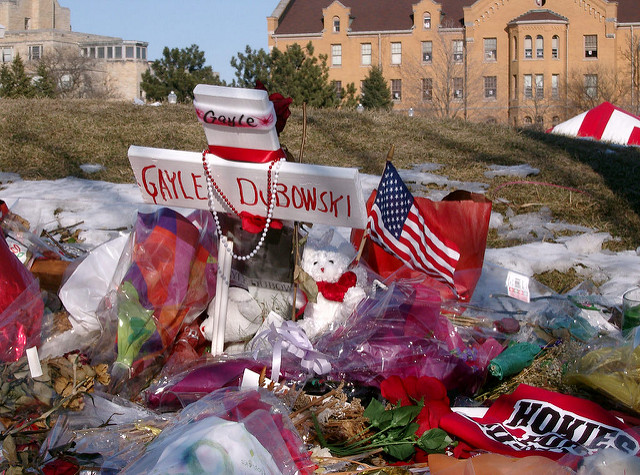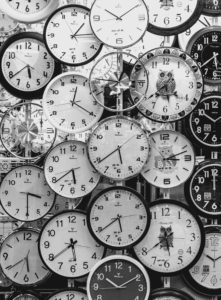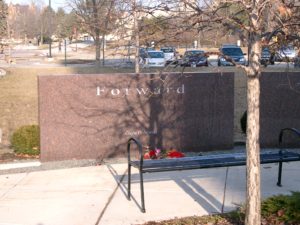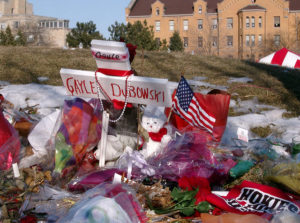
Part of my mission as a Grief Recovery Specialist and a Licensed Marriage & Family Therapist is to dispel lies we’ve been taught about grief and bereavement:
My mission is to promote the understanding of grief as the normal and natural response to losses of many kinds, expressed in ways unique to each person and loss, and to promote the idea that moving beyond grief and loss is both desirable and possible for those who grieve.
This mission means hope for people suffering grief and bereavement.
They Tell Us to “Move On,” But Not How
They tell us how to feel and how not to feel.
Our society has adopted the idea that it is wrong or unhealthy to “feel bad.” They expect us to “be happy” as soon as possible, even after significant loss has occurred. They tell us that “time heals,” or, “it just takes time” to recover. As a result, when we have feelings of loneliness, fear, sadness or anger linger longer than some arbitrary measure of time after a loss, they tell us there is something wrong with us. They tell us to see a counselor, and so we seek counseling or drugs to help us feel better.
However, it is normal to feel sad, fearful, disoriented, confused or angry when we have experienced a significant loss, or an unexpected change in our lives. I also believe that time alone does not heal. It is misguided, even harmful, to judge people based upon how long grief persists. And so it is my mission to educate people about grief as the normal and natural response to loss. When I specify losses of many kinds, I draw attention to the fact that grief is not from death alone. There are over 40 different life events that we can experience in a lifetime that can produce grief.
We compare our grieving with others.
Grief is not only normal and natural. It is unique to each person, and to each relationship that is lost. One of the things that grieving people tell me is most aggravating is people saying “I know how you feel.” When we compare a loss we experience with someone else’s, we tend to minimize or dismiss their pain. Therefore, it does not help us to compare our pain and losses with one another. Instead, when we listen to another person without sharing about our own losses, we build trust and connection. We make room for healing for that other person.
We segregate ourselves
In addition, we limit ourselves by believing that only someone who has experienced the “same loss” as we have can help us. This is ironic, given how negatively people feel when told “I know how you feel.” But it does counteract to some degree the harm done when people with different losses compare their pain and grief. The downside of this belief is that it serves to further isolate us. Thinking that only another bereaved parent can understand what I am going through eliminates most people I know.
if you want to get the best laptop for Cricut under $500 then you can check it. I’ve written an amazing guide about it.
In my support groups we counteract this by minimizing comparison between grievers. We uphold the truth of each person’s uniqueness. As a result, we do not need to limit the groups to people with one type of loss. Consequently, each person is able to connect safely with others suffering their own grief and bereavement. Group members no longer feel so isolated and lonely.
They give us intellectual advice that does not heal our broken hearts.
People sometime extend this idea of uniqueness to infer that the ways to deal with grief are unique as well. Some tell us “There is no one right way to grieve.” Others predict doom for us, saying “You never get over the death of a child,” and “Your heart is forever broken.” When we don’t challenge such overly-general, intellectual-sounding statements, we tend to look for information to support them. We stop looking for actions to take to feel better, because people tell us there are none.
We have learned that statements like these are untrue, harmful, and potentially dangerous. Instead, I offer people hope that their hearts, though sad, can again enjoy fond memories of people they lost. I help them to let go of the pain of unmet hopes and dreams, and expectations for the future. It is possible, and even desirable, to complete the pain brought about by loss and move beyond loss. We can live more fully in the present when what was painful about the past is completed.
Providing education and assistance for the grief and bereavement
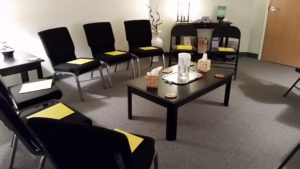
To help bring hope and expectancy to grievers, I provide education and inspiration through:
- Teaching the Grief Recovery Method One-on-One program with individuals
- Leading educational groups such as the Grief Recovery Method® Support Groups
- The 4-week Grief Recovery Method® Helping Children Deal with Loss programs for parents and guardians of grieving children
- The 6-week Grief Recovery Method® Pet Loss Support Groups
- Speaking to churches, community groups, and professional organizations, and
- Leading experiential workshops and group meetings
For more information on the services I provide, see my Grief Recovery services page. And click here to learn more about the Grief Recovery Method, as well as more articles on topics related to grief and bereavement.

